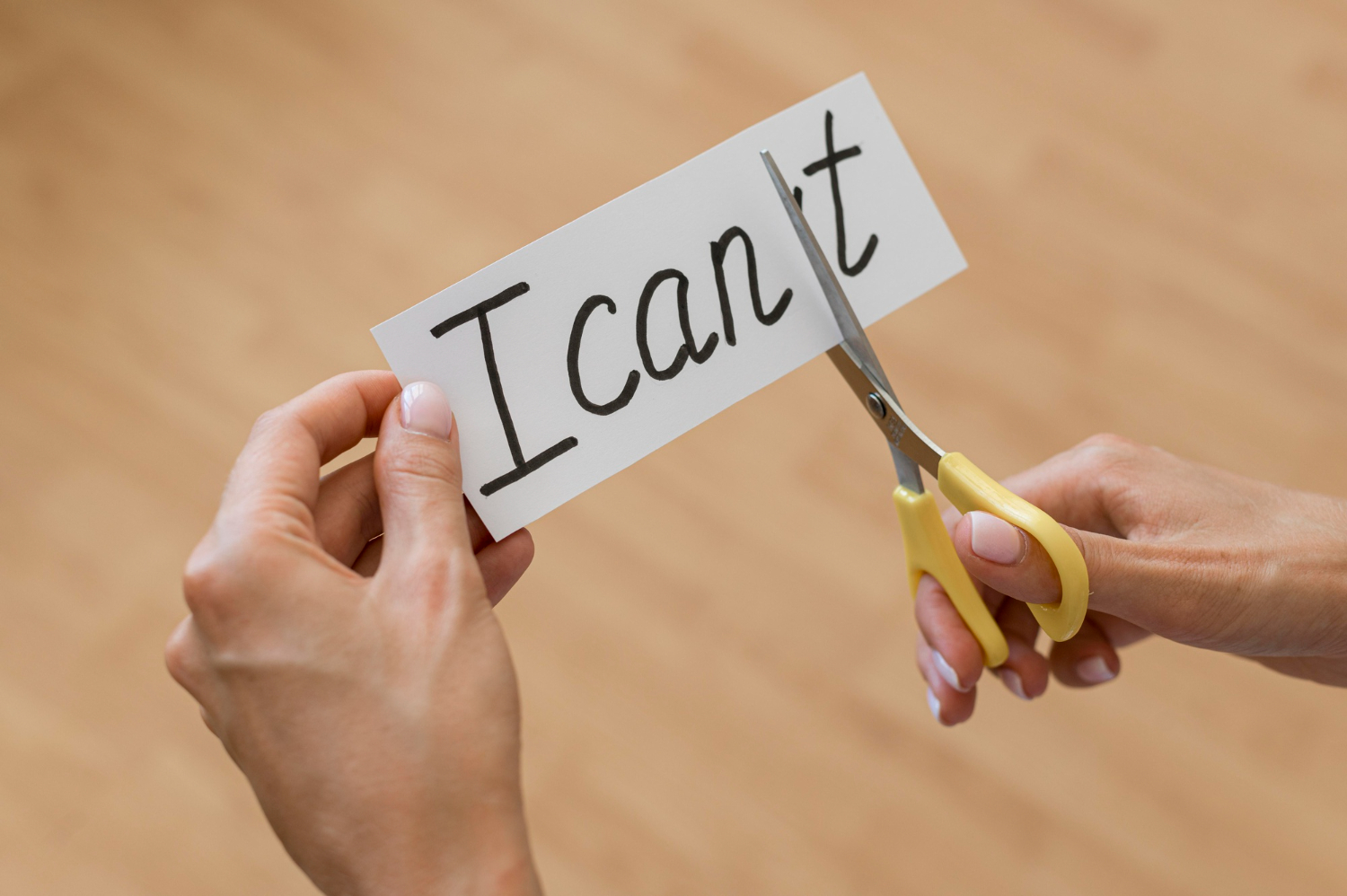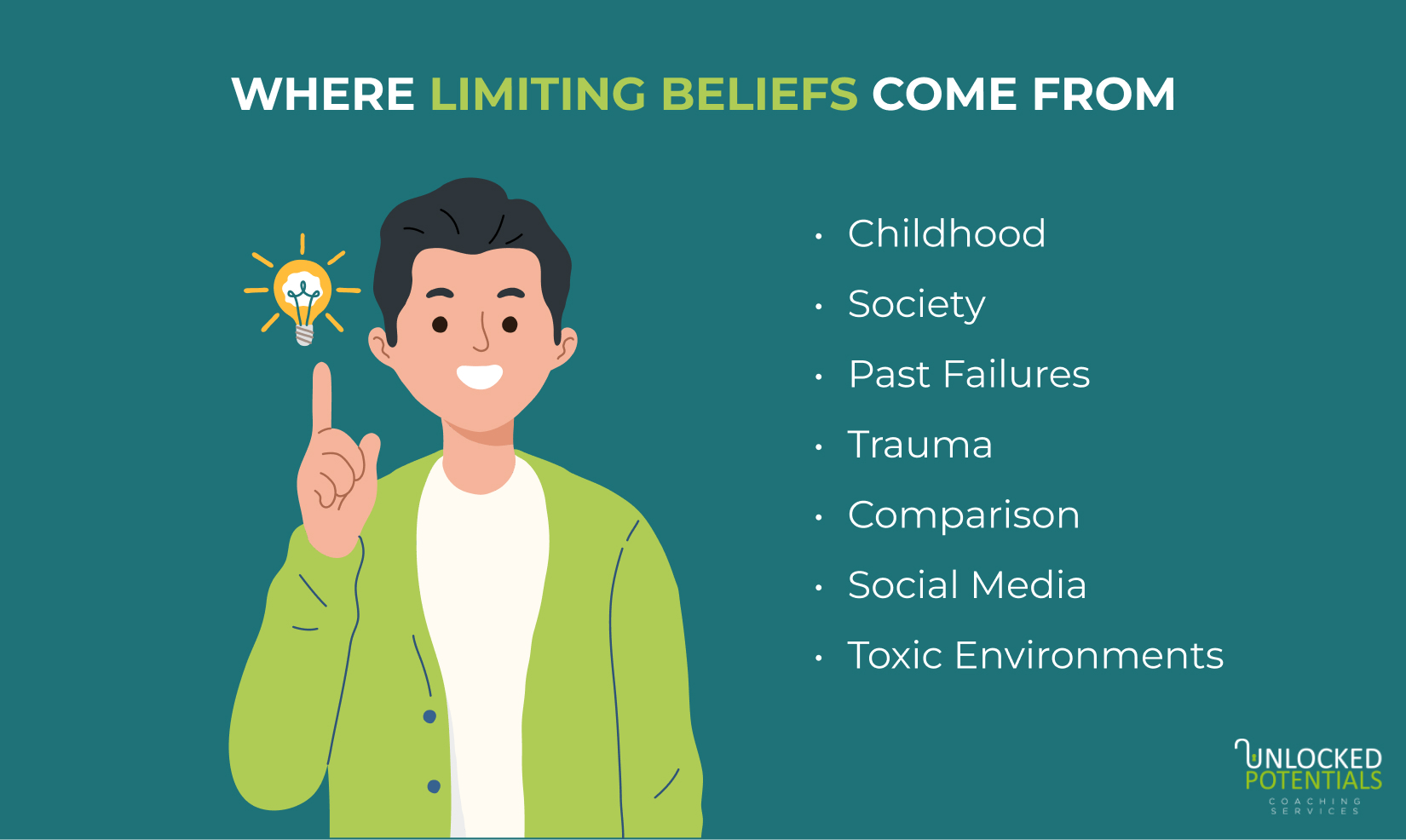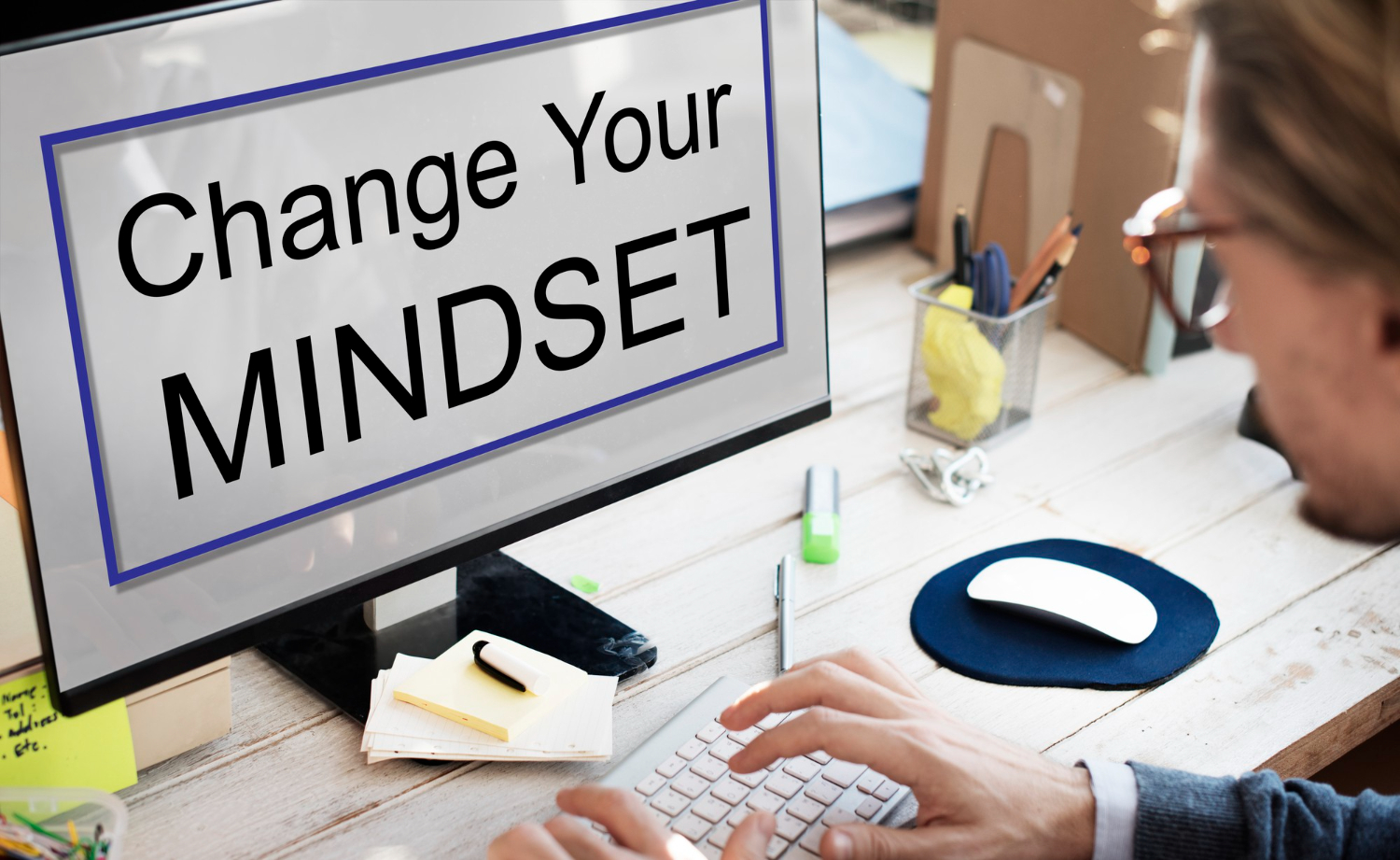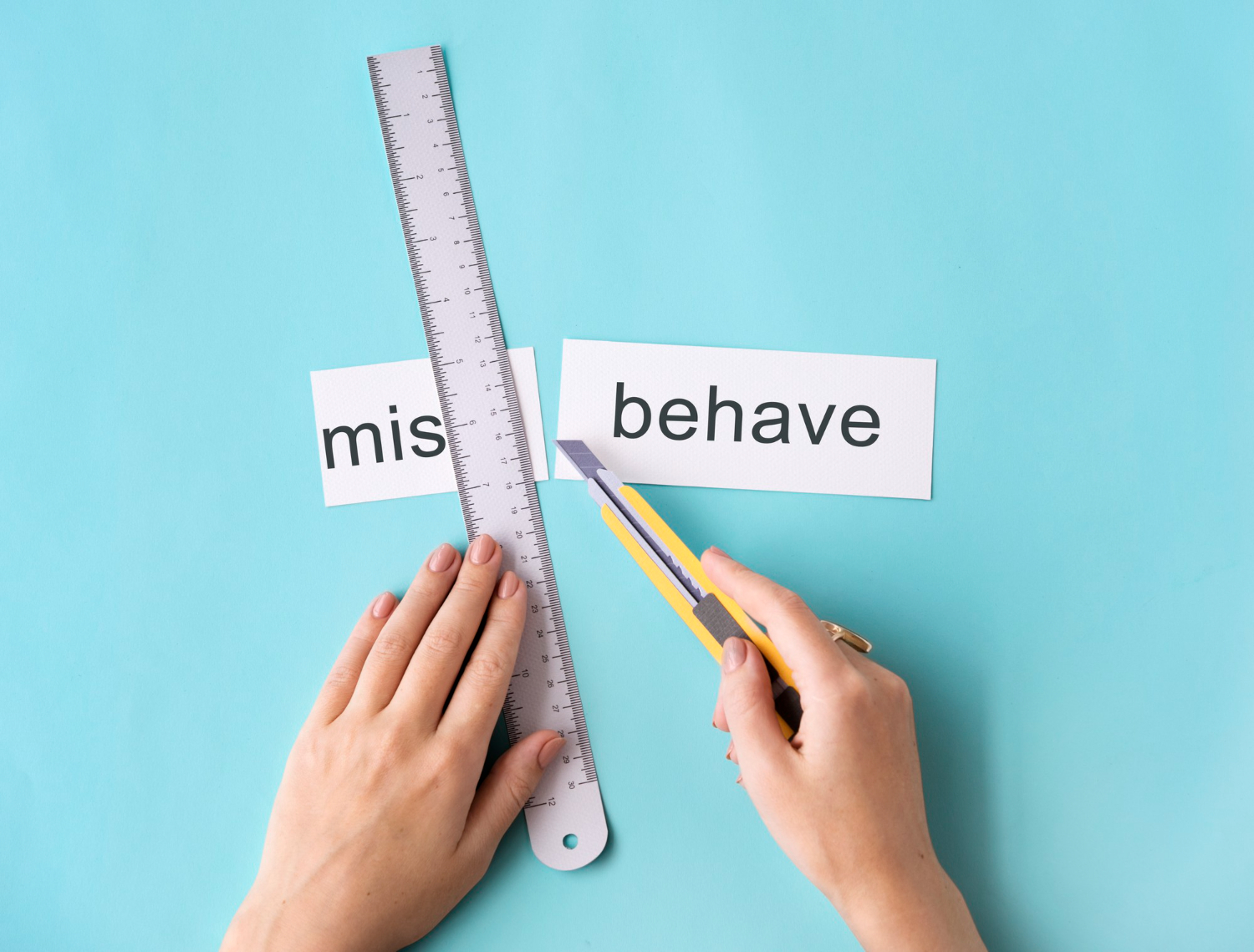9 Limiting Beliefs Holding You Back: How to Identify and Overcome Them

Many people struggle to move forward in life because of limiting beliefs, deeply held thoughts that convince you you’re not capable, worthy, or ready. These beliefs often sound like facts, but they’re not. They’re assumptions rooted in fear, past experiences, or conditioning.
The good news is you can identify and replace these beliefs with more empowering ones. In this article, we’ll explain what limiting beliefs are, where they come from, how to spot them, and proven strategies to overcome them.
What Are Limiting Beliefs
Limiting beliefs are the unhelpful thoughts or assumptions we hold, often unconsciously that restrict our potential, behaviour, and decision-making. These beliefs act as mental barriers that shape how we see ourselves, others, and the world around us. They typically present themselves as “truths,” even though they are based on fear, misinformation, or past experiences rather than fact.
Limiting beliefs are not always loud or obvious; sometimes they show up as quiet doubts or default responses like, “I could never do that,” or “That’s just not for people like me.” Over time, these thoughts become ingrained patterns, guiding choices and reinforcing limitations without us even realising it.
If left unaddressed, limiting beliefs can impact everything from career decisions and financial goals to relationships and personal growth. They create invisible boundaries that keep us within a familiar, but often unfulfilling, comfort zone.
Understanding what self-limiting beliefs are is the first step to breaking free from them. Once you can recognise these patterns in your thinking, you can begin the process of challenging and replacing them with beliefs that support your growth, confidence, and overall wellbeing.
Where Do Limiting Beliefs Come From
Limiting beliefs don’t appear out of nowhere. They are shaped over time by a variety of internal and external influences, many of which begin early in life. Knowing where these beliefs originate can help you approach them with self-compassion and curiosity rather than judgment.
Early childhood experiences (parents, teachers)
The foundations of many limiting beliefs are laid during childhood. The words and behaviours of parents, teachers, or caregivers often leave lasting impressions. A well-meaning comment like “you’re not very artistic” can turn into a deeply held belief that “I’m not creative”, and influence choices for years to come.
Societal norms and cultural conditioning
Society often promotes narrow definitions of success, gender roles, intelligence, or capability. If you don’t fit the expected mould, it’s easy to internalise beliefs like “I’m not enough,” or “I’m not meant for leadership.” These cultural narratives can feel so normal that we rarely stop to question them.
Past failures or traumas
Negative experiences, such as being rejected, failing at something important, or being shamed can lead to protective beliefs meant to avoid future pain. While this may seem helpful in the short term, it often keeps people from trying again or taking healthy risks in the future.
Comparison culture and social media
Constant exposure to curated lives on social media makes it easy to fall into the trap of comparison. Seeing others succeed can trigger beliefs like “I’ll never be that successful” or “I don’t have what it takes.” These thoughts, repeated often enough, become limiting beliefs that impact confidence and motivation.
Negative environments (workplaces, toxic relationships)
Working or living in environments where you feel undervalued, criticised, or unsupported can reinforce harmful beliefs about your abilities or worth. Over time, you may begin to accept those negative messages as your own, making it harder to recognise your true potential.
9 Common Self Limiting Beliefs That May Be Holding You Back
1. “I’m not good enough.”
Feeling “not good enough” can stop you from applying for jobs, speaking up, or going after goals because you assume you lack value or ability. It creates constant self-doubt, even when you have the skills or experience. You hold back to avoid judgment or failure, which only reinforces the belief. To overcome it, start recognising your achievements, speak to yourself with more compassion, and take small actions that prove your capability.
2. “I’m too old / too young to do this.”
Believing your age disqualifies you can prevent you from starting a new career, learning something new, or being taken seriously. You might avoid opportunities out of fear that others won’t respect your experience or lack of it. Age doesn’t determine value; mindset and willingness to grow do. Challenge this belief by focusing on what you bring to the table, not how many years you’ve lived.
3. “I don’t have enough time.”
Saying you don’t have time often masks fear, procrastination, or low prioritisation of your own life goals. It stops you from investing in personal development, relationships, or meaningful changes because you feel everything else must come first. Time is limited, but it can be managed when you set clear boundaries and take small steps forward. Shift from “I don’t have time” to “This matters enough to make time.”
4. “I’m not smart or talented enough.”
Doubting your intelligence or talent can keep you stuck in jobs, roles, or situations where you feel safe but unfulfilled. You may avoid challenges or learning opportunities because you assume you’ll fail. This limiting belief thrives on comparison and fear of judgement. Replace it by focusing on growth, reminding yourself that skills are developed, not fixed and progress matters more than perfection.
5. “I’ll never be successful.”
Assuming you’ll fail before you even try can make you avoid taking any meaningful steps toward your goals. You might give up quickly or not start at all, believing success is for “other people.” Often, this belief stems from past setbacks that felt personal or permanent. To shift it, redefine success on your own terms and build resilience by focusing on effort and learning, not just outcomes.
6. “I don’t deserve wealth or happiness.”
Feeling undeserving can make you reject opportunities, downplay achievements, or self-sabotage progress in your career or relationships. You may accept less than you want or need because you believe you haven’t earned more. Begin to challenge it by practising self-acceptance, allowing yourself to receive, and recognising that worthiness isn’t something you earn, it’s something you already have.
7. “I can’t ask for what I want.”
Fearing that you’ll be rejected, misunderstood, or seen as selfish can stop you from speaking up about your needs, boundaries, or goals. You might stay silent in work settings, relationships, or negotiations, only to feel overlooked or resentful later. Start small by asking clearly for one thing you need and notice how often others are more receptive than you expected.
8. “This is just how I am.”
Believing that your personality or habits can’t change holds you back from personal growth. You might avoid improving your communication, leadership skills, or confidence because you’ve accepted fixed labels like “I’m shy” or “I’m not a people person.” Growth is always possible, start by questioning the labels you’ve placed on yourself and give yourself permission to grow.
9. “I’m bad with money”
Thinking you’re bad with money can cause you to avoid budgeting, investing, or learning about finances altogether. You may believe you’re not “the type” to be financially successful, leading to cycles of stress and poor money habits. This is one of the most common limiting beliefs about money, often inherited from past experiences or family attitudes. Shift your mindset by treating financial skills like any other skill, learnable with time, support, and consistent effort.
How to Identify Your Limiting Beliefs
Before you can change a limiting belief, you first need to recognise it, and that’s not always easy. These beliefs often operate quietly in the background of your mind, presenting themselves as unquestioned “truths” or excuses that feel entirely logical. You might think you’re being realistic, when in fact you’re playing small because of an assumption you’ve carried for years.
Start by paying close attention to your self-talk, especially in situations where you feel doubt, hesitation, or fear. Phrases like “I always mess this up”, “That’s just not who I am”, or “People like me don’t succeed in that field” are strong indicators of a limiting belief.
You can also identify limiting beliefs by reflecting on recurring challenges in your life. Ask yourself:
- What do I tell myself when I avoid doing something I want to do?
- Is this belief helping me move forward, or keeping me stuck?
- Where might I have learned this belief, and is it actually true?
Writing these thoughts down often helps you see them more clearly. Patterns begin to emerge, and what once felt like fact becomes visible as a learned belief, something you can challenge and change.
How to Get Rid of Limiting Beliefs (5 Proven Techniques)
Once you’ve identified your limiting beliefs, the next step is to dismantle them, and that takes intention and consistency. These beliefs didn’t form overnight, and they won’t disappear instantly. But with practice, patience, and the right tools, you can start replacing them with new, more empowering ways of thinking.
Here are five proven techniques to help you break free from limiting beliefs:
1. Awareness and Journaling
Awareness is always the first step. Many limiting beliefs live beneath the surface, operating automatically until you pause and bring them into the light. Journaling is a powerful tool for this. Set aside a few minutes each day or week to write down your thoughts, fears, or internal narratives around specific goals or situations.
When you see your thoughts on paper, it becomes easier to separate assumptions from facts. Ask yourself: Where did this belief come from? Is it absolutely true? What is it costing me to keep believing this?
You don’t need perfect answers, just honest reflection. Over time, journaling helps you spot patterns and create the space needed for change.
2. Challenge and Reframe
Once you’ve identified a belief, challenge it. Question whether it’s accurate, helpful, or even yours to begin with. Many beliefs come from past experiences, teachers, parents, or cultural messaging, not from your own truth.
Ask yourself:
- What evidence do I have that contradicts this belief?
- What would I say to a friend who believed this about themselves?
- What else could be true instead?
Reframing is not about blind positivity, it’s about creating a more balanced and supportive internal narrative. For example, shift “I’m not good enough” to “I’m learning and improving every day”. It’s not about pretending everything is perfect, but recognising that your beliefs can grow along with you.
3. Positive Affirmations and Evidence Building
Your mind tends to believe what it hears most often, especially when it comes from you. That’s why replacing negative self-talk with positive, realistic affirmations can help reset your mental habits. Try affirmations like:
- “I am capable and resourceful.”
- “I have the right to ask for what I need.”
- “I can learn new skills at any age.”
But don’t stop there, build a case for yourself. Collect evidence of times when you handled a challenge, received positive feedback, or made progress. Save compliments, project wins, or milestones in a folder or notebook. Review them when self-doubt arises to remind yourself that your limiting belief is not the whole story.
4. Take Empowered Action
Nothing shifts a belief faster than proving it wrong. When you take even small steps toward something you previously avoided, you begin to build new evidence about what you’re capable of. Start where you are. Apply for the role, speak up in the meeting, enrol in the course, even if it feels uncomfortable.
Action rewires belief. It helps you move from “I can’t” to “Maybe I can” to “I just did.” Don’t wait to feel completely ready. Often, confidence is the result of action, not the prerequisite.
5. Coaching or Mentorship
Sometimes, breaking through a deeply rooted belief requires guidance from someone who can see your blind spots. Limiting beliefs coaching provides a supportive space to uncover the thoughts holding you back and develop personalised strategies to move forward. A coach can challenge unhelpful thinking, reflect your strengths back to you, and hold you accountable as you shift your mindset.
If one-to-one coaching isn’t accessible, consider finding a mentor or joining a peer support group. Having someone who believes in your growth, and is willing to support you through the uncomfortable parts can make all the difference.
Final Thoughts: You’re Not Your Beliefs
Limiting beliefs are not facts, they’re stories you’ve learned, repeated, and perhaps outgrown. They may have served a purpose at one point, often to protect you from discomfort or failure, but they no longer need to define you. You are not your doubts, fears, or past experiences.
Growth starts when you begin to question what you’ve always assumed to be true about yourself. By bringing awareness to your beliefs, challenging them with honesty, and choosing new ways of thinking, you give yourself permission to step into your potential.
Progress doesn’t require perfection, just a willingness to see yourself differently. You have everything you need to move forward, one decision at a time. Let today be the moment you stop believing the voice that holds you back and start listening to the one that lifts you up.
Frequently Asked Questions
What are limiting beliefs and how do they affect daily life?
Limiting beliefs are thoughts you accept as truth that hold you back from reaching your goals. They shape how you view your abilities, potential, and options. You may not notice them at first, but they often influence your decisions, like avoiding public speaking, not applying for a job, or staying in situations that no longer serve you.
How do I know if a belief I have is limiting my progress?
If a belief keeps you from taking action, creates doubt, or makes you feel stuck, it’s likely a limiting belief. These beliefs often sound like “I can’t,” “I shouldn’t,” or “That’s not for me.” Ask yourself whether the belief is based on fact, or if it’s just something you’ve repeated for so long it now feels true.
Can limiting beliefs be changed, or are they permanent?
Limiting beliefs are not fixed. They are learned over time and can be unlearned. With reflection, awareness, and consistent effort, you can replace them with beliefs that support your goals. Changing your beliefs doesn’t happen overnight, but it’s possible at any stage of life or career.
Are there common limiting beliefs in the UAE professional setting?
Yes, especially around career progression, status, and financial success. Some common ones include “I need to follow a traditional path to be respected,” or “I can’t take a risk because failure is not acceptable.” These beliefs can limit innovation and personal growth, especially in competitive work environments. Recognising and challenging them is key to moving forward.
How can limiting beliefs coaching help me overcome mental blocks?
Limiting beliefs coaching helps you recognise patterns in your thinking that keep you from making progress. A coach offers structure, perspective, and practical tools to help you shift those beliefs. This support is especially useful if you find yourself repeating the same habits or avoiding decisions that matter to you.
- September 2025
- August 2025
- July 2025
- June 2025
- May 2025
- April 2025
- March 2025
- February 2025
- January 2025
- December 2024
- November 2024
- October 2024
- September 2024
- August 2024
- July 2024
- June 2024
- May 2024
- December 2023
- November 2023
- August 2023
- July 2023
- June 2023
- May 2023
- April 2023
- March 2023
- February 2023
- January 2023
- December 2022
- November 2022
- October 2022
- September 2022
- August 2022
- July 2022
- June 2022
- May 2022
- April 2022
- March 2022
- February 2022
- January 2022
- December 2021
- November 2021
- October 2021
- September 2021
- August 2021
- July 2021
- June 2021
- May 2021
- April 2021
- March 2020
- February 2020
- January 2020
- December 2019
- November 2019
- October 2019
- September 2019
- August 2019
- July 2019
- June 2019
- May 2019
- April 2019
- March 2019
- February 2019
- January 2019
- December 2018
- November 2018
- October 2018
- September 2018
- August 2018
- July 2015
- May 2014









